COVID-19 and peacebuilding response
The coronavirus disease (COVID-19) pandemic and its associated responses have the potential to exacerbate existing conflict dynamics and structural inequalities, as well as create new ones. Already, the effects of this are being witnessed in conflict-affected and fragile countries across the world.

Incorporating a peacebuilding approach in pandemic responses is essential to ensure the success of public health interventions, to mitigate emerging conflict trends and to take advantage of opportunities to comprehensively address the root causes of tensions and violence. The global COVID-19 crisis provides a window for local civil society, governments, and humanitarian and development partners to pursue responses that underpin and support peace in fragile contexts.
International Alert’s COVID-19 peacebuilding response has been developed from contextual analysis of early conflict dynamics in the countries where we operate, drawing on the expertise of local staff and partners, and leveraging our 30 years of extensive peacebuilding experience at the local and global level. We have adapted existing programmes and developed new initiatives; all the while raising awareness of the centrality and proven impact of peacebuilding approaches across the five programming areas outlined below.
These five programming areas have been designed to not only support conflict-sensitive pandemic responses, but to comprehensively address the root causes of conflict, to strengthen prospects for a positive and sustained peace.
Five ways to build positive peace in pandemic responses
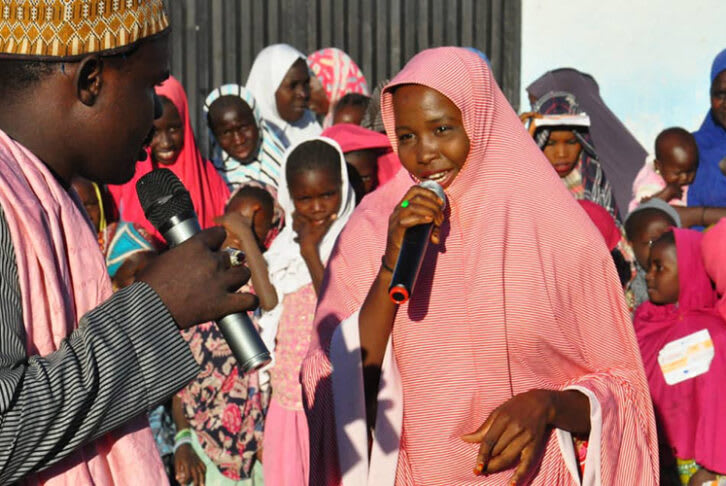
Countering divisive narratives and building bridges across divides
The ‘othering’ and stigmatisation of certain groups – often those already marginalised – has intensified in multiple settings throughout the pandemic.
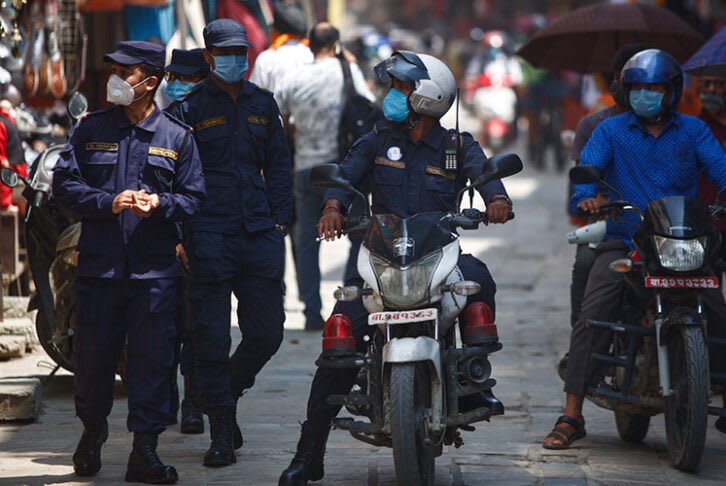
(Re)building trust and accountability between citizens and states
One of the long-term impacts of the COVID-19 pandemic will be the extent to which it challenges the prevailing social contract between citizens and states.
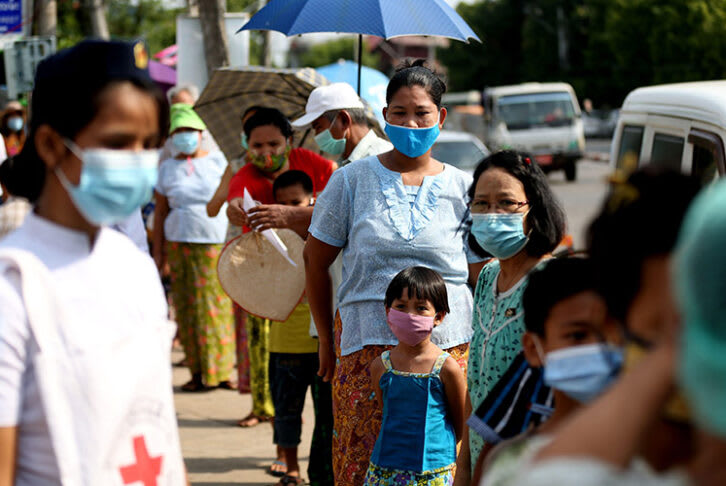
Reducing gender inequalities through responding to COVID-19 and its impacts
The COVID-19 pandemic is a gendered crisis, deepening inequalities and exposing vulnerabilities in social, political and economic systems, which in turn amplify the impacts of the pandemic.
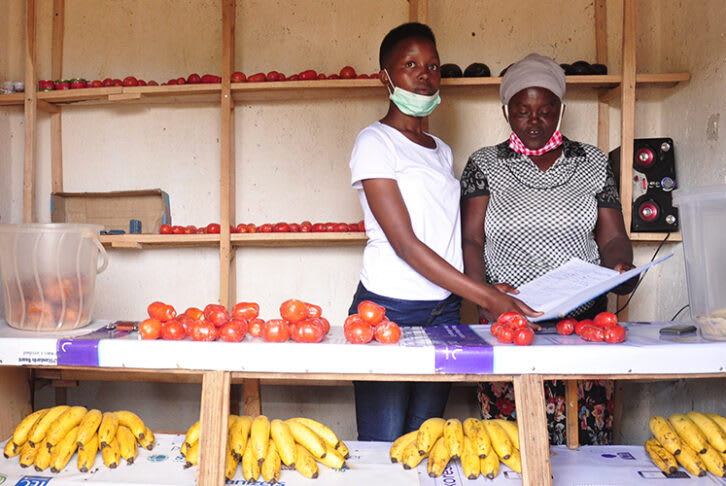
Supporting conflict-sensitive public health and humanitarian response
The way in which aid and recovery interventions are delivered in fragile settings is critical, whether this is by external agencies, governments, the private sector or civil society.
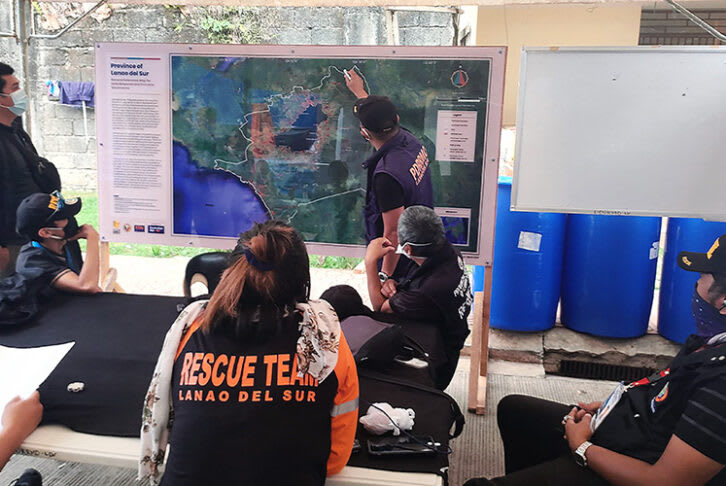
Using evidence to inform short- and long-term responses to COVID-19 and conflict
How COVID-19 affects and creates conflict dynamics will differ within diverse contexts and lasting impacts will vary across countries and communities.
How can we deliver peacebuilding impact during a pandemic?
The operating environment for peacebuilders has changed drastically as a result of COVID-19 and will continue to be disrupted by long-term travel restrictions and social distancing measures.
In response, our teams in-country, together with local peacebuilding partners, are adapting their ways of working to the pandemic context, continually supported by organisational research and learning.
Ways of working in this new environment not only involve the use of digital methodologies, such as online platforms for virtual dialogue, but developing mechanisms to ensure that we can continue to support and champion our partnerships with local peacebuilding organisations, even at a distance.
Below are just some of the examples of this in practice.
Digital support for livelihoods resilience in DRC
We have been supporting women small-scale cross-border traders for nearly a decade in the Democratic Republic of Congo (DRC). The Mupaka Shamba Letu project (‘The Border, our Livelihood’), works to build bridges across identity divides and achieve shared advocacy outcomes, fostering social cohesion and regional cooperation. During the pandemic, the team developed a resilience plan to maintain contact with women’s groups digitally, sharing solutions through WhatsApp and creating online training platforms. The women we support were also introduced to e-commerce and local farmers to enable them to continue trading. For those without internet access, radio programming and socially distanced visits ensured inclusion. Through continued advocacy, our DRC team has shed light on the additional pressures of COVID-19 on women, particularly the impact of border closures on cross-border trade. They continue to work closely with local authorities to provide responses that meet women’s needs.
Strengthening and elevating partnerships in Ukraine
Our Ukraine team has partnered with over 100 local and national civil society organisations since 2015. The team provide conflict sensitivity training, technical support and mentorship, which over the years has resulted in the establishment of a peacebuilding network where partner organisations can exchange knowledge and learning. Throughout the pandemic, Ukraine’s now vibrant civil society networks have mobilised to respond in a variety of innovative ways. We have continued to provide support to these organisations, working to strengthen and elevate their profiles. We have adapted context analysis tools for online use, as well as developing a social cohesion toolkit to help build community resilience to the crisis. The team provided tools to partner organisations to collaborate effectively with local authorities and media and facilitated virtual dialogue platforms to enable partners to support each other during the crisis and share best practices for the new pandemic environment.
An online space for civil society in the South Caucasus
Throughout the summer, our local partners in the South Caucasus held virtual discussion clubs as part of the Youth Dialogue for Civic Action project. The discussion clubs have centred around a range of topics related to peacebuilding, civil society and the pandemic, including ‘The role of women in peacebuilding’, reflecting on the impacts of the women, peace and security agenda, and ‘Human rights in a time of pandemic’, considering the effect of the pandemic on human rights protections in post-Soviet states, as well as broader social issues, such as the recent amendments to the Russian constitution. By utilising digital tools for peacebuilding, we have ensured the continuation of a safe space for young people to discuss issues relating to their everyday lives, as well as opportunities for local partners to maintain contact across regional conflict lines.

Can we build peace from a distance?
COVID-19 has disrupted one of the foundation principles of peacebuilding practice: the basic need to bring people together face-to-face. Our background paper explores the overall impact on peacebuilding practice when intergroup contact is limited.





